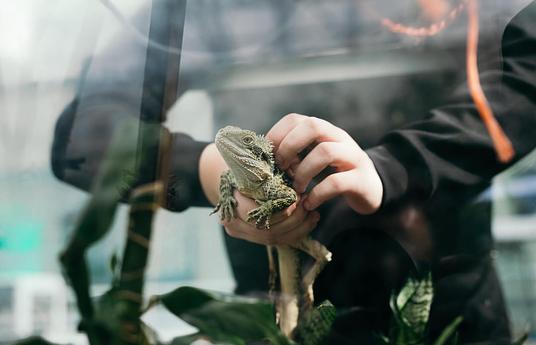We created this innovation to address the root causes of gender-based violence and inequality in Turkey, where harmful gender norms shape attitudes from an early age. According to a 2014 study by the Ministry of Family and Social Policies and Turkish Statistical Institute, 36% of women have experienced physical violence, 44% emotional violence, and 12% sexual violence by partners. Though this remains the most comprehensive official dataset, a new study is planned. In 2023, the Ministry of Interior reported 308 women were killed by men—highlighting the urgency of preventive action. These figures reflect both systemic inequality and a widespread lack of early education on gender.
We believe early intervention through education is key to lasting cultural change. By reaching teachers—who shape children’s formative years—we aim to break the cycle of inequality. Our program equips educators with knowledge, tools, and mentoring to foster inclusive, gender-sensitive classrooms.
Through participatory training and reflection-based learning, teachers report increased awareness, confidence, and a shift in classroom practices. The impact extends beyond schools: children question gender stereotypes, and teachers bring this mindset into families and communities. Our SROI analysis shows every 1 TL invested generates 8.05 TL in social value. By transforming how gender is taught from early childhood, we work toward a future where equality, safety, and empathy are the norm—not the exception.
Our innovation combines a one-day interactive training and a two-week mentorship to empower teachers to address gender inequality starting from early childhood education. Each year, the program reaches around 1,000 teachers in public schools across diverse regions of Turkey, both urban and rural areas. In 2024, it was implemented in provinces such as Kahramanmaraş, Batman, Elazığ, Diyarbakır, Malatya, Hakkari, Muğla, İzmir, Zonguldak, Düzce, Yozgat, Çorum, Burdur, Erzurum, Mersin, and Kırklareli. Through workshops, case studies, and reflective activities, teachers engage in a participatory process that supports inclusive classroom practices, awareness of gender roles, sensitivity to stereotypes and bias.
Unlike standard teacher training, program is grounded in academic research and uses exploratory, discussion-based strategies that engage participants emotionally and intellectually. Teachers describe it as a safe, reflective space where they re-evaluate their beliefs and connect with peers around shared values.
Alongside learning outcomes—like increased awareness and confidence—participants report stronger teamwork, collaboration, and well-being. Annual evaluations using qualitative and quantitative tools show consistent improvements in teachers’ attitudes, knowledge, and motivation. To amplify impact, we organize an annual gender equality conference where teachers and field experts come together to expand awareness, share practices, and inspire systemic change in education.
Our program has expanded to multiple regions across Turkey, reaching public school teachers working in both rural and urban settings. Independent evaluation conducted by a professional measurement and evaluation firm confirmed significant changes in teachers' knowledge, attitudes, and classroom practices. Teachers reported adopting a more equitable and peaceful language, creating inclusive environments, and becoming more willing to design materials and activities that promote gender equality. Over the past three years, nearly 3,000 teachers have completed the program, indirectly reaching more than 50,000 students. Considering the long-term influence teachers have over generations of students, the potential number of lives impacted is exponentially higher—possibly up to 30 times more.
In the next 2–3 years, we aim to scale the program to more schools across Turkey, especially in underserved regions. We plan to deepen the student-centered aspects of our content and strengthen our mentoring model to ensure sustainable behavioral change. Additionally, we aim to build a growing network of teachers who share good practices in gender equality education, supported by national conferences, digital communities, and peer-learning platforms. Our vision is to foster a movement led by educators who champion equality in every classroom they touch.
If you would like to adopt the program in your own context, the process can begin with building a partnership with the Teachers Academy Foundation (ÖRAV). The program’s flexible design allows for cultural and linguistic adaptation as long as core values—gender equality, teacher empowerment, and participatory learning—are preserved.
We suggest two main implementation models. In the first, ÖRAV offers a Training of Trainers (ToT) for educators to ensure accurate transfer of content and pedagogy. In the second, ÖRAV co-develops the adapted version and leads the first implementation phase—ideal where local experience in gender-sensitive education is limited. A small pilot and the gradual development of a local trainer pool are also suggested to support sustainable scale-up. ÖRAV may support partners in monitoring, evaluation, and impact assessment processes to ensure continuous learning and quality.
The program can be implemented by schools, NGOs, universities, teacher networks, local governments, or education authorities committed to promoting gender equality in education. If direct collaboration is not possible, institutions may still adapt the model by reviewing public materials, consulting experts, and aligning the approach with its original intent. Pilot testing, outcome tracking, and proper acknowledgment of the source are strongly recommended for ethical and effective adaptation.
For inquiries, contact info@orav.org.tr or proje@orav.org.tr, or visit www.orav.org.tr.
.jpeg)


